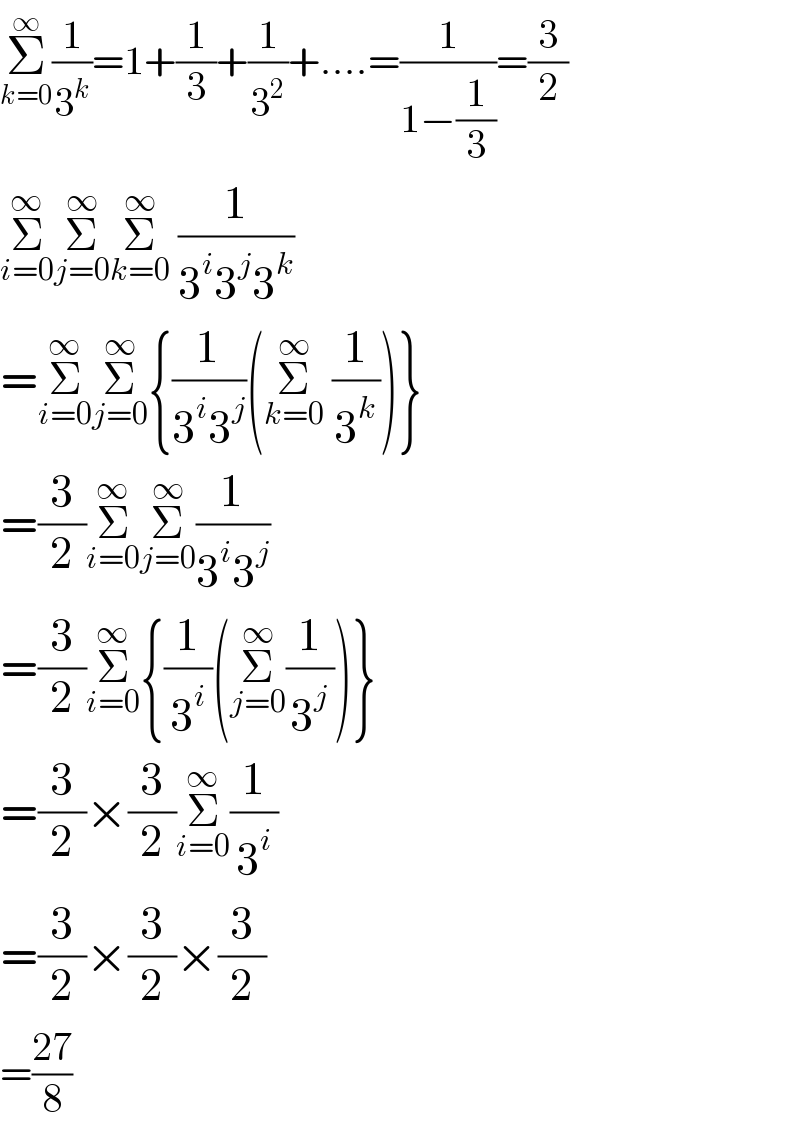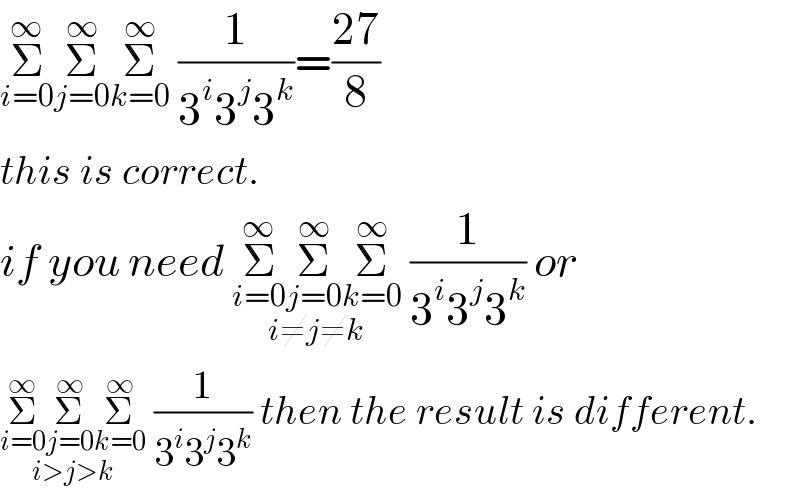
Question and Answers Forum
Question Number 31743 by rahul 19 last updated on 13/Mar/18

Answered by mrW2 last updated on 13/Mar/18

Commented bymrW2 last updated on 14/Mar/18

Commented byrahul 19 last updated on 14/Mar/18

Commented bymrW2 last updated on 14/Mar/18

Commented byrahul 19 last updated on 14/Mar/18

Commented byabdo imad last updated on 14/Mar/18

